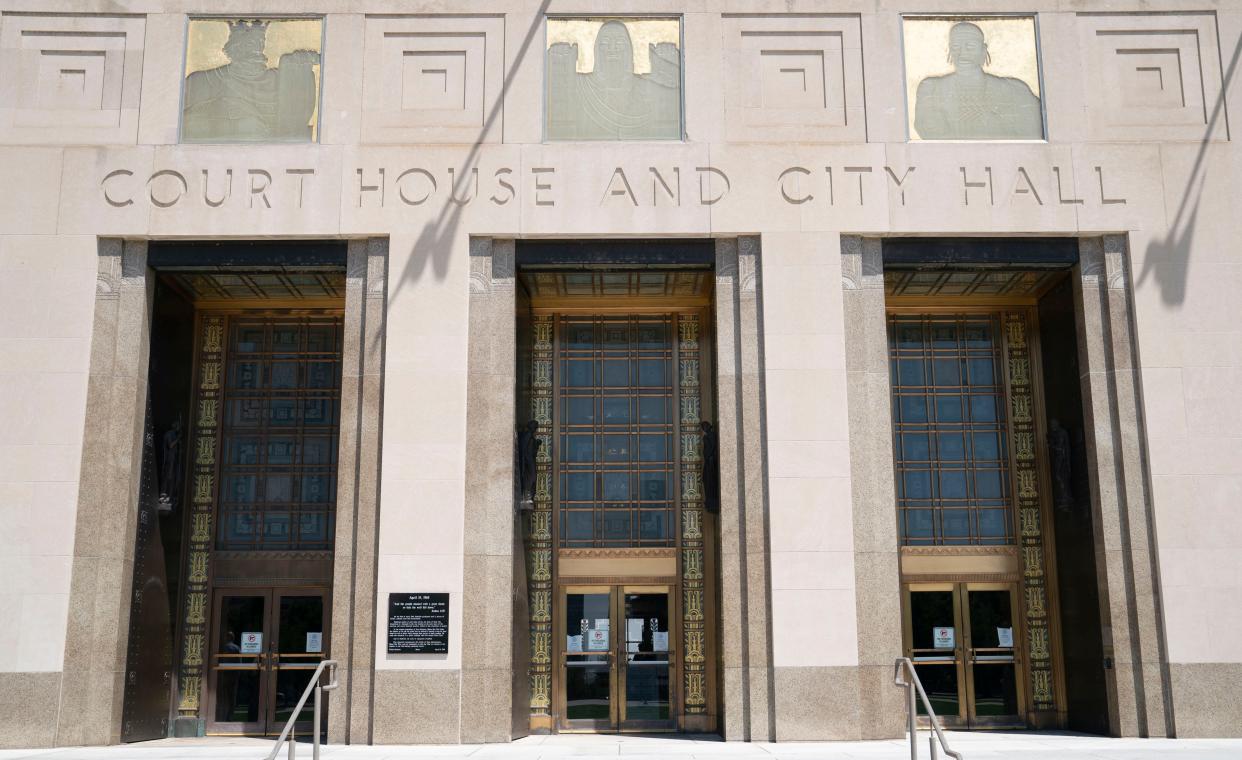Nashville council passes law barring license plate reader use for anti-abortion law enforcement

Law enforcement will not be permitted to use license plate reader technology in Nashville to enforce any laws criminalizing abortion, the city's council decided Tuesday.
The council separately deferred a $500,000 allocation of Metro funds toward a grant providing "comprehensive sex education," "safer sex supplies" and support for resident access to out-of-state procedures.
These items are Metro Council's latest actions intended to insulate Davidson County residents who "choose to explore any reproductive rights options" from harm under the state's recent abortion ban.
A Tennessee law criminalizing all abortions — with no exceptions for rape, incest or victims of child sexual abuse — went into effect Aug. 25. The state statute criminalizes providers of abortion care. Providers can use an "affirmative defense" in limited cases, but only after they have been criminally charged.
LPR use restricted for abortion cases
The ordinance approved unanimously on consent Tuesday bars the use of license plate readers, or LPRs, for "assisting with enforcing laws outlawing abortion or outlawing interstate travel to obtain abortion."
The state has not passed any legislation criminalizing out-of-state travel to obtain an abortion, though anti-abortion activists have signaled they will pursue the issue in future legislation. Whether or not such a law would be supported by legal precedent is debated.
While Nashville does not yet have license plate readers, or LPRs, in place, the council approved a six-month pilot of LPR technology earlier this year.
Under the pilot, which has yet to begin, Nashville police can use LPRs to capture images of license plates and compare them against the plate numbers of stolen vehicles and vehicles flagged for potential connections with violent crime, felony offenses, reckless driving or missing persons cases. The council passed an ordinance in August restricting LPR use for assistance with immigration enforcement.
Proposed grant deferred
Metro Council deferred the resolution for a $500,000 grant program to the first meeting in October to comply with Metro Charter rules for transferring funds between accounts.
The half-million-dollar program would be administered through a grant to Planned Parenthood with the following spending categories:
$200,000 toward "comprehensive sex education" resources
$150,000 toward "safer sex supplies" and community outreach
$150,000 to assist Davidson County residents with access to abortion outside Tennessee
Tennessee Right to Life issued a statement Tuesday opposing the grant.
"Instead of City Council working to undo the work of our duly elected state legislature, we urge them to join with us in thanking our state legislators who saw the need to pass (the Human Life Protection Act) to end the legalized destruction of innocent human lives," the statement read, in part.
Funding for the grant would be drawn from Metro's existing budget, including dollars redirected from the following proposed sources:
$100,000 from Metro Council
$100,000 from the Mayor's Office
$300,000 from traffic signal maintenance
"The (funding) sources here don't exactly align with what the sponsors (envisioned)," Councilmember Freddie O'Connell, one of the resolution's co-sponsors, said during the Budget and Finance Committee meeting Tuesday. Conversations about funding source options will continue pending the resolution's next appearance before the council in October.
More council news: Nashville council approves abortion-related change to 'Do Better Bill'
Letters: Pro-choice and pro-life readers debate Tennessee's abortion ban and what's next
Other abortion-related legislation
Nashville's council also advanced a bill Tuesday that would require the Davidson County Department of Health to provide family planning counseling, birth control counseling and birth control products to residents free of charge. The bill will be considered again by the council on its second of three readings on Sept. 20.
The council first took a formal stance against the U.S. Supreme Court's reversal of Roe v. Wade in July, passing a resolution encouraging Nashville police to deprioritize abortion-related cases.
In the weeks since, the council has asked the Metro Employee Benefit Board — with the support of the mayor's office — to review employee medical coverage and extend it if necessary to include reimbursement for costs associated with out-of-state medical procedures unavailable in Tennessee.
An ordinance passed last month amended the 2017 "Do Better Bill," requiring companies seeking incentive grants to report whether their employee health care coverage includes costs for out-of-state medical treatments not offered in the employee's home state.
Melissa Brown contributed.
Cassandra Stephenson covers Metro government for The Tennessean. Reach her at ckstephenson@tennessean.com. Follow Cassandra on Twitter at @CStephenson731.
This article originally appeared on Nashville Tennessean: Nashville won't allow license plate readers in enforcing abortion ban

